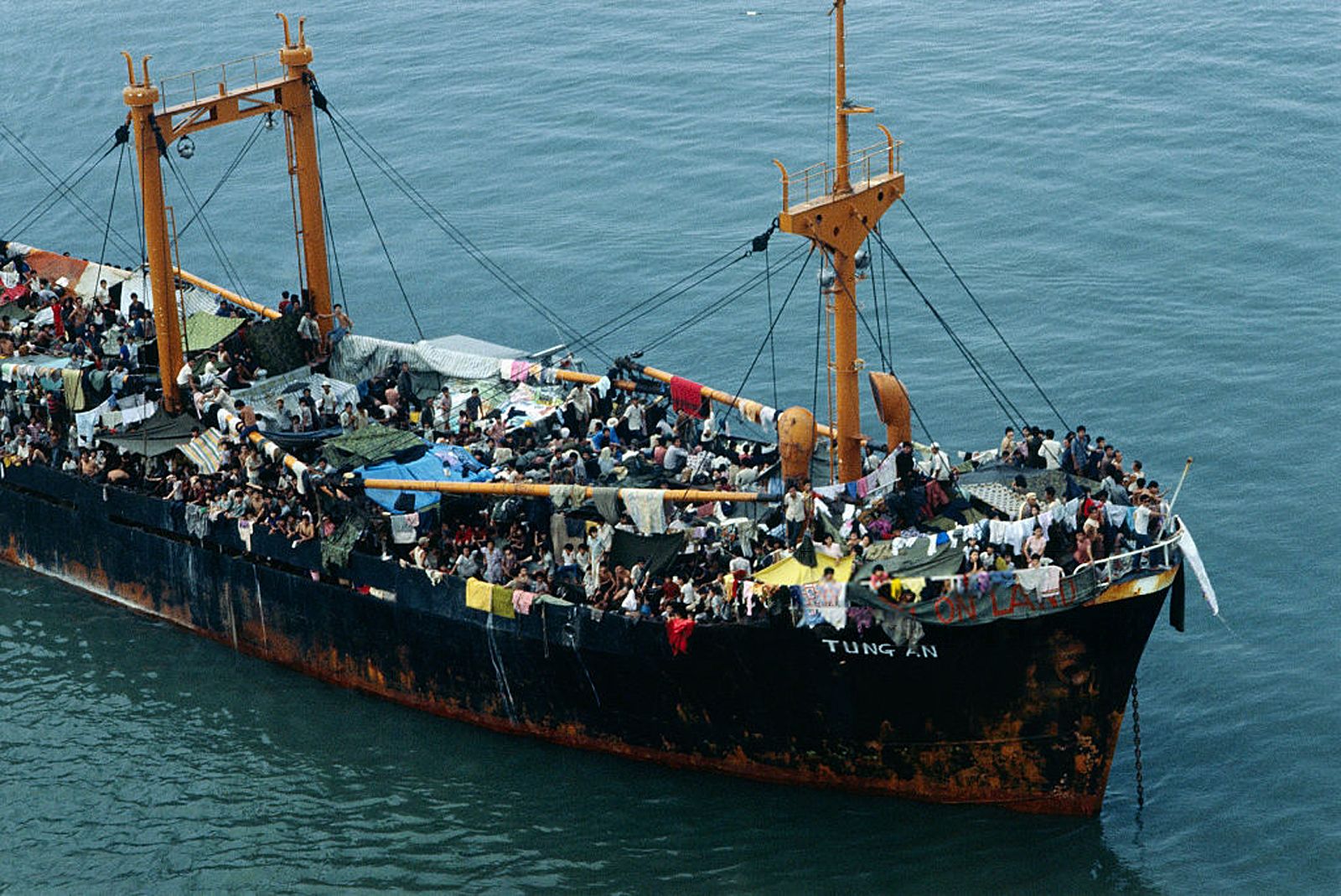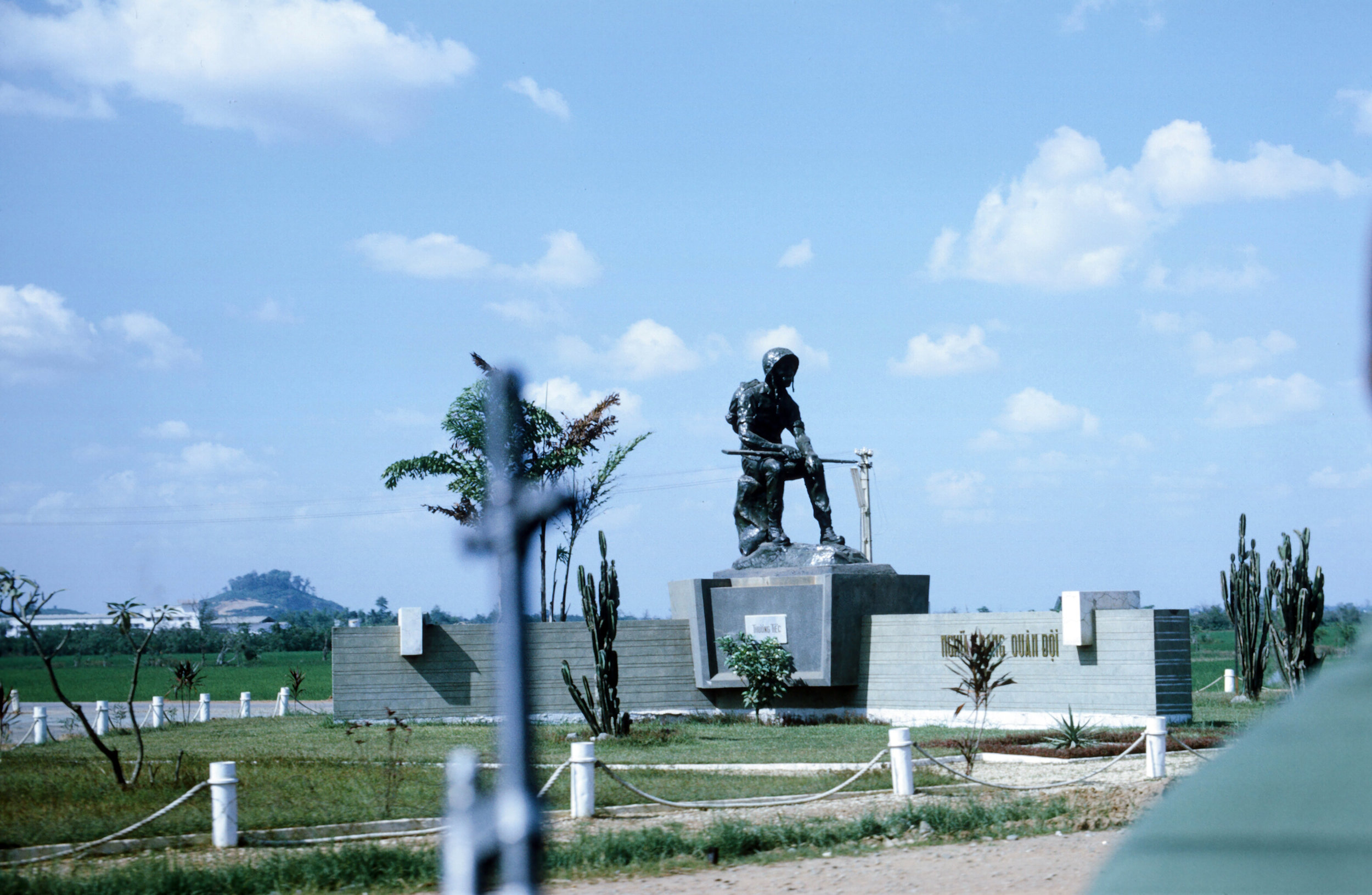Refugees

We are at the height of the greatest refugee crisis since the end of the Vietnam War. Although the similarities between the Syrian refugees and the Vietnamese boat people are undeniable, there are many in the Vietnamese-American community who would deny these Syrians a place to escape to.
Just a few decades ago, the Vietnamese were being turned away left and right. For many of the other Southeast Asian countries faced with growing numbers of boat people arriving on their shores, the Vietnamese people were a plague. For the Americans forced to acknowledge those being granted asylum, the Vietnamese were an economic and social nuisance.
The Tung An with 2,700 Vietnamese refugees anchored in Manila Bay after Philippine authorities refused to allow them to disembark.
Why should Americans be forced to work with, give jobs to, and associate with a people who represented the deaths of 58,000 American deaths? Most of the refugees barely spoke English, they knew little of American customs and culture, and they stood poised to "siphon precious social welfare from other hardworking Americans."
Even Governor Jerry Brown of California initially refused to allow Vietnamese refugees land in his state. The KKK viewed the Vietnamese fisherman in the Gulf Coast as a threat to the livelihoods of white Americans, attacking their boats and businesses. And yet, the Vietnamese people persevered. They became citizens, businesspeople, legislators, inventors, and community leaders.
The boat people suffered the most in the aftermath of the Vietnam War. According to the United Nations High Commission for Refugees, anywhere from two hundred thousand to four hundred thousand died at sea. The actual number will never be known. Untolds more were attacked, raped, or abducted by pirates in the South China Sea. They suffered from malnutrition, dehydration, and sea sickness, often carrying no food, water, or any personal possessions besides gold (which they could use to bribe government officials, national police, or pirates). Some even resorted to cannibalism to survive.
As they sailed into the shipping lanes, hoping to attract the attention of passing freighters and maybe even the United States Navy, the boat people hoped that their journeys would culminate in a better future—if not for them, than perhaps for their children, many of whom would be placed on boats without their parents, who had sold all of their possessions in order to send their children away from Vietnam.
They were government officials, bureaucrats, and civil service workers. They were soldiers, veterans, and people who had worked closely with the Americans. They were civilians, trying to make a living in the war-torn countryside or in the bustling cities. They were mothers, fathers, sisters, and brothers. It takes a different type of person to be willing to give up everything for just a glimmer of hope, though over two million turned out to be that type of person.
Refugee camp on Pulau Bidong in Malaysia, 1979.
Today, many in the Vietnamese overseas communities are opposed to the resettlement of Syrian refugees. They say that the Syrians have to get in fairly, going through the same process that they once did. They say that among the Syrian refugees, some are terrorists. They also say the Syrians will use up social services. What they are forgetting is that they too were once illegal immigrants, fleeing their country illegally and landing illegally on foreign shores. They relied the charity and goodwill of others to take English language learner classes, for food, for clothing, and for healthcare.
Now that the Vietnamese have established themselves in the United States, they have a duty to provide for those who now find themselves in that same situation they were in, just a few decades ago.
Where is the difference between the Vietnamese and the Syrian stories?







